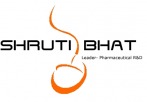
The New York Times reported that, according to studies presented at the American College of Cardiology meeting and to be published online March 18 by the New England Journal of Medicine, "aggressive treatment strategies doctors had expected would prevent heart attacks among people with type 2 diabetes and some who are the verge of developing it have proved to be ineffective or even harmful." Still, some experts, such as Dr. Daniel Einhorn, said that the results of these studies "would not necessarily dissuade him from taking such intensive measures with individual patients." He conceded, however, "It's hard to make a case for a public health recommendation.
The Wall Street Journal reported that the ACCORD study of a subset of 5,518 patients found that treating hypertension to levels currently lower than recommended in practice does not lower the risk of stroke, heart attack, or death in type 2 diabetes patients. Moreover, researchers also found that Abbott's drug TriCor (fenofibrate), even though it did lower triglyceride levels, did not stop patients from having strokes and heart attacks. In another study, the drug Starlix (nateglinide) did not stop patients at high risk for type 2 diabetes from eventually developing the condition.
The ACCORD study findings "provoked a sharp response from Abbott vice president Eugene Sun, who said in a statement that" in patients with "abnormally high triglycerides or low levels of good cholesterol," combining "fenofibrate and simvastatin reduced heart attacks, strokes, and deaths by 31% over simvastatin alone." Meanwhile, cardiologist Steven Nissen, MD, of the Cleveland Clinic, pointed out the risk of a "higher incidence of kidney failure and other serious side effects" revealed when "doctors examined the benefits of intensive blood pressure lowering in diabetic patients and found that it failed to reduce deaths, heart attacks, and strokes taken together."
A decade ago, the federal government launched the three-part study to see whether intensely lowering blood sugar, blood pressure, or fats in the blood would reduce heart attacks and strokes in diabetics. The first piece of the study -- about blood sugar -- was stopped two years ago, when researchers saw more instead of less risk with that approach." As for what to do now, cardiologist Clyde Yancy and other experts advised diabetic patients to "focus on healthy diets and lifestyles, and take tried-and-true medicines that doctors recommend now to control health risks."
One report focuses particularly on TriCor's failure "to cut the risk of heart attacks, strokes and cardiac deaths in diabetics." In a related piece, Bloomberg News reported that "Novartis AG's top blood pressure pill Diovan (valsartan) failed to prevent heart attacks, strokes or deaths in high-risk patients, while its diabetes drug Starlix didn't protect them from developing heart disease or diabetes." HealthDay 3rd March issue, also focused on the Diovan and Starlix study conclusions.
In an editorial accompanying the studies, the Los Angeles Times "Booster Shots" blog reported that "Dr. David Nathan, of Massachusetts General Hospital, wrote that the 'prevention of diabetes remains a critical public health priority, but for now we should steer away from" Diovan and Starlix, "'and use effective lifestyle interventions" or metformin."
Tthe findings come from the huge National Heart, Lung, and Blood Institute-funded Action to Control Cardiovascular Risk in Diabetes (ACCORD) trial which, overall, involved more than 10,000 patients with type 2 diabetes at risk for heart disease.
FDA To Review ACCORD Study.
In a related story, The FDA said it will conduct a full review of findings from a study which concluded that neither aggressive lipid-lowering therapy nor tight blood pressure control reduced cardiovascular events in persons with diabetes." The study found the "addition of fenofibrate" to statin therapy "did not reduce cardiovascular events." MedPage Today noted that an FDA "spokesperson said the agency planned to include a review of the labeling and indications for fenofibric acid (Trilipix). It should, however, be noted that the trial used fenofibrate (TriCor)."
Disclaimer- The content of this article is intended to provide a general guide to the subject matter. Specialist advice should be sought about your specific circumstances.
More at http://www.pharm-education.com/2010/03/strategies-to-prevent-heart-attacks-in.html
Http://www.drshrutibhat.comExpert at leading Pharmaceutical R&D.
Translates innovative concepts to PROFITS.
Do you have questions for the author?




















